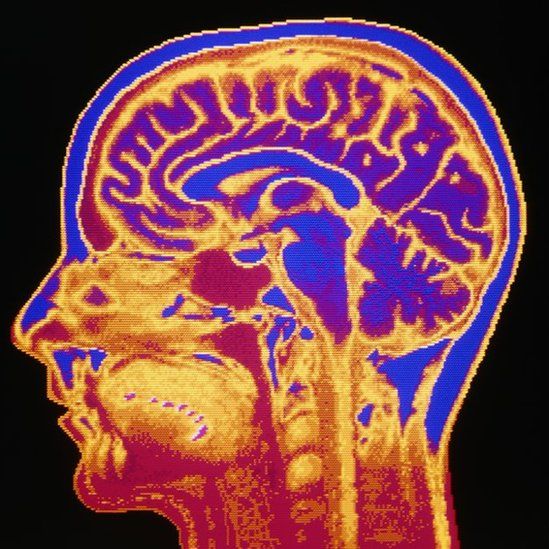-
 Cuthbert
1.1kSince we and our acquaintances and credit companies know exactly who we are outside the philosophy lab, why do we struggle with the question when we step inside?
Cuthbert
1.1kSince we and our acquaintances and credit companies know exactly who we are outside the philosophy lab, why do we struggle with the question when we step inside?
I can't tell the difference between mass delusions/hallucinations and objectivity. — TheMadFool
Mass delusion is when all your followers kill themselves, expecting the world to end as you told them. Objectivity is when you find out who your cell-mate is. -
TheMadFool
13.8kMass delusion is when all your followers kill themselves, expecting the world to end as you told them. Objectivity is when you find out who your cell-mate is. — Cuthbert
:lol: So it would seem...so it would seem... -
 Gnomon
4.3k
Gnomon
4.3k
Yes. Ideal metaphors usually have some concrete counterpart in the real world that it refers to as a crude approximation of the abstraction in the mind. That's how we communicate images in our minds to other minds. They can look at the concrete object and form an approximate idea of what I'm imagining. However, if I show them a brain "gyrus" (something that loops back on itself) they won't understand what I mean by "self" or "ego" or "i".You consider the ego as a mental thing. I don't. . . .
. . . . .So the strange loop is a metaphorical loop, but at the same time it has a material counterpart in the brain. Looking at yoursel mentally will lead to inwardly radiating droste effects. — Cartuna
The metaphorical object is not the mental image, but merely has some essential similarity : e.g. a physical thing that loops back on itself to represent by analogy the concept of a mind looking back at itself.. The Ego is an especially difficult notion of metaphorize in concrete terms :cool:
Analogy :
1. An analogy is a comparison made to show how two different things are similar, especially in limited ways.
Mind/Brain problem in Psychology and Philosophy :
https://www.simplypsychology.org/mindbodydebate.html
Apparently, you think of the Ego as a material object. Where is the Ego in this picture of a "physical thing"? Hint : there are lots of "strange loops" (gyri) in the picture. :joke:

THE BALLOON IS NOT THE EGO

This image is not the pipe

-
 Gnomon
4.3k
Gnomon
4.3k
Yes. A picture is worth a thousand philosophical metaphors. :smile:↪Gnomon
I like the images you post. I wish we could do this for all of philosophy. Pictures have a certain quality to them that allows them to get a point across in ways that words somehow can't. — TheMadFool

-
 Gnomon
4.3k
Gnomon
4.3k
The only difference is in the metaphorical interpretation of the mental image : i.e. what it means to you.I can't tell the difference between mass delusions/hallucinations and objectivity. — TheMadFool
Unfortunately, abstract mental images & metaphors are too easy to mis-interpret, due mainly to pre-conceptions. So who deludes who? :chin:
But we decide which is right
And which is an illusion
___Moody Blues, Late Lament -
 Cartuna
246
Cartuna
246
The image is not the ego indeed. If I think about myself I don't see myself like I see other people. I think about situations as I saw them when I did the thing I was doing (i perspective). Thinking about Eddy Murphy I see him talking to me or others. It seems pretty unnatural to look at yourself from the outside (like taking your face off and turn it towards you.. A mirror helps but mirror. Magritte has painted some nice philosophical stuff. Like that man seeing his back in the mirror. Seeing yourself from the back can only be done wìth video. :smile: -
 Cartuna
246Apparently, you think of the Ego as a material object. Where is the Ego in this picture of a "physical thing"? Hint : there are lots of "strange loops" (gyri) in the picture. :joke: — Gnomon
Cartuna
246Apparently, you think of the Ego as a material object. Where is the Ego in this picture of a "physical thing"? Hint : there are lots of "strange loops" (gyri) in the picture. :joke: — Gnomon
I think the ego is neither material neither mental. It lies at the boundary between them. So in a way it's both. Strange loops I see! :joke: -
 Gnomon
4.3k
Gnomon
4.3k
Interesting! How would you describe that "strange" neither-here-nor-there "boundary" -- metaphorically, of course. That's the beauty of metaphors, they help us to form our own personal images of the imaginary objects in other minds. Sometimes, the communication solution is to assume that a coin has two sides that we can't see simultaneously, That ambiguity requires us to do some mental (metaphorical) flipping. :smile:I think the ego is neither material neither mental. It lies at the boundary between them. So in a way it's both. Strange loops I see! — Cartuna
neither fish nor fowl :
of indefinite character and difficult to identify or classify
to seem partly one thing and partly another,
not belonging to any suitable class or description.
NEITHER FOWL NOR BUNNY

-
 Cartuna
246That's the beauty of metaphors, they help us to form our own personal images of the imaginary objects in other minds. — Gnomon
Cartuna
246That's the beauty of metaphors, they help us to form our own personal images of the imaginary objects in other minds. — Gnomon
:100:
I see it like a fuzzy sphere that can vibrate and take all kinds of forms. That fuzzy sphere contains mental stuff and around the sphere is material stuff. The inside takes stuff in from the outside. Untill it gets inside it was both matter and mental. No boundary yet. When arrived inside the sphere (you) it becomes part of the mental inside. Looking to the outside stuff, you look at the matter part of the unity. Inside you the matter gives rise to consciousness. And in between are you, the fuzzy sphere. :smile: -
TheMadFool
13.8k -
 Gregory
5k
Gregory
5k
It seems to me a sense of I is necessary for enjoyment. Is it a metaphysical substance? That doesn't matter. We are all made of of the truly free moments we have experienced and that karma (good and bad) gives you as much identity as anything could -
 Jack Cummins
5.7k
Jack Cummins
5.7k
You are quite right to speak of how a sense of'' I' is central to experiences, including the good and bad moments, because the ego consciousness is a central agent in interpretation of the events in life and, for human beings, it is the meaning of these which are essential, especially in the ongoing process of autobiographical narratives and the sense of one 's own 'story'. -
 Lyubomir Blazhev
3Human beings have been proven to not be the only living organism on planet earth that are self-conscious. There are other mammals, who we brutally torture and kill in the trillions per annum, who are self-conscious.
Lyubomir Blazhev
3Human beings have been proven to not be the only living organism on planet earth that are self-conscious. There are other mammals, who we brutally torture and kill in the trillions per annum, who are self-conscious.
What is "I"? It's the mind. The mind that receives your bodily sensations in the form of vision, pain, sound and etc. and in about 50% of the population also engage in silent self-talk called thinking.
What is the mind? The mind is a process inside the biological machine called brain. It's very easy to prove this by looking at Alzheimer's plaque buildup in the brain which is positively correlated with a reduce in consciousness/mind. No brain cells, no consciousness, no mind.
How exactly the brain produces mind is so far explained by science as synaptic transmission between braincells, identical to a computing processor although science has a lot more to unravel, nevertheless, that's as close as we are to thoroughly explain what is "I" if we are using reason.
If we are not using reason, then we can chalk it to some magical universal, everlasting source of God, soul or whatever.
I am hoping against reason for the latter albeit I know I am most likely to be disappointed when I die. -
 khaled
3.5kIn my experience "I" has no defined meaning. It is a great superpower of humans to be able to switch what they mean by themselves, and to recognize certain parts as "of them" or "alien". When someone scores a touchdown it's "all me baby" but when they murder someone it's all "the voices"
khaled
3.5kIn my experience "I" has no defined meaning. It is a great superpower of humans to be able to switch what they mean by themselves, and to recognize certain parts as "of them" or "alien". When someone scores a touchdown it's "all me baby" but when they murder someone it's all "the voices"
'I' in the sense of it being the cohesive centre of experiences and it appears to exist throughout life, as the central focus in human identity. — Jack Cummins
That's one use. Very rarely used though. For one, this use doesn't allow possessiveness. By this definition: "I own a car" makes no sense. Neither do most other uses. "I thought about X" also doesn't make sense by this definition, etc.
I wonder why does each of have an 'I' as an aspect of consciousness, or self consciousness? Are human beings the only living beings with a sense of 'I'? — Jack Cummins
By the definition of "I" you're using, you wouldn't know if each person has an "I" in the first place. Much less anything else.
I think open, closed, and empty individualism also ties into this topic. -
 Jack Cummins
5.7k
Jack Cummins
5.7k
I think that your point about the idea of inner 'voices' is important because the 'I' may be experienced as a range of voices of thoughts although most people do not hear voices literally. But, maybe those who do even speak of hearing voices may be experiencing the fragmentation of the 'I'. So, psychosis may be related to difficulty in establishing a cohesive identity of subjective identity.
As far as understanding that other people have a sense of I is probably based on hearing others refer to themselves and their subjective experiences. It is also likely to be related to the development of theory of mind, in the sense of the individual developing understanding that other human beings have subjective realities similar to their own. In terms of individualism, it probably does come into it and in Western society there is so much emphasis on the self and people may develop identity with varying degrees of a sense of being part of a group, or as being a separate entity from others. -
TheMadFool
13.8kHi Jack.
Some say the I is imaginary like but then something extraordinary happens: the imaginary I has to realize that it's imaginary (not real). Isn't that like a hologram of a person finding out it's a hologram? An illusion coming to know it's an illusion. Basically a nonexistent thing discovering it doesn't exist. How does that work? Something smells fishy...Buddhism? -
 Jack Cummins
5.7k
Jack Cummins
5.7k
Definitely Buddhism, or its many writers, have a lot to say about ego consciousness and the way in which the 'I' can be seen as illusory in certain respects. This is probably most clear in mindfulness meditation. I have some limited experience of using these techniques and it is about being able to observe the flow of thoughts and, at this level, even the 'I' can be seen as a construct. It may be that the I needs to be seen partly as a construct, but on the other hand, without the 'I' there would be no identity as we know it. Each of us would have the inner experience of being like blobs of mind jelly. -
TheMadFool
13.8k
The I has to be unique.
In the real world, there are many Jack Cumminses but in TPF, there's only ONE :point: YOU!
An aside: Our world cannot be a simulation. Computers can't handle two/more people named Jack Cummins unless...the computers simulating the world are a notch above what we have today. This reminds me of Wittgenstein's language games and its relation, if such exists, to computer languages. The latter can't handle ambiguity i.e. if we name a variable (a word in language), that variable (word) can't be used for anything else. Buddhist Maya? :chin: -
 Jack Cummins
5.7k
Jack Cummins
5.7k
I guess that with regard to the unique parts of personal identity, a lot depends on the aspects which are most fundamental, including the genetic components and environmental factors. However, there is so much which comes down to subjective interpretations and meanings. In a way, each of has own sense of internal meanings and narrative stories, which comprise the whole nature of identity. I asked the question, 'Who am 'I', but this also is the 'Who am I? ', which Erik Erikson points to as being the essential part of identity and identity crisis, especially important in adolescence. The whole experience of exploration during adolescence is about experimentation, and even rebellion.
So, personal identity is about finding a unique path in life and links to the issue of 'Know Thyself' and authenticity. This involves the existential aspects of life choices. Also, it may be that one knows who one is more in retrospect than in an advance, because it may be that many of the acts which the person does may be spontaneous and may be different from the way they would have imagined they would have acted. So, while the question of the sense of identity involves the ongoing sense of becoming, this also involves assimilation of previous choices and integration of this as an ongoing fluid sense of the ''I' of existence.
Welcome to The Philosophy Forum!
Get involved in philosophical discussions about knowledge, truth, language, consciousness, science, politics, religion, logic and mathematics, art, history, and lots more. No ads, no clutter, and very little agreement — just fascinating conversations.
Categories
- Guest category
- Phil. Writing Challenge - June 2025
- The Lounge
- General Philosophy
- Metaphysics & Epistemology
- Philosophy of Mind
- Ethics
- Political Philosophy
- Philosophy of Art
- Logic & Philosophy of Mathematics
- Philosophy of Religion
- Philosophy of Science
- Philosophy of Language
- Interesting Stuff
- Politics and Current Affairs
- Humanities and Social Sciences
- Science and Technology
- Non-English Discussion
- German Discussion
- Spanish Discussion
- Learning Centre
- Resources
- Books and Papers
- Reading groups
- Questions
- Guest Speakers
- David Pearce
- Massimo Pigliucci
- Debates
- Debate Proposals
- Debate Discussion
- Feedback
- Article submissions
- About TPF
- Help
- Other sites we like
- Social media
- Terms of Service
- Sign In
- Created with PlushForums
- © 2026 The Philosophy Forum








